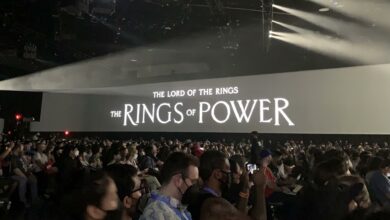2023 Pritzker Prize winner says cities must foster ‘sense of belonging’

By Elena Garuz
Berlin, Mar 10 (EFE).- British architect David Chipperfield, the 2023 recipient of the prestigious Pritzker Prize, calls for re-imagining city design with a view to overcoming social inequality and reinforcing a sense of belonging.
In an interview with Efe in Berlin, he noted that cities occupy a place in people’s cumulative and collective memories because they are typically built over a long period of time.
“Now, we change things in a very big way, and we move people out, so there’s a change both physically and … socially. People who used to live in the city no longer can afford to live in the city. The buildings that they used to live in are now shops and offices,” the 69-year-old architect said.
According to Chipperfield, “we are underestimating the importance that architecture plays in our imagination and in our sense of ourselves.”
“Cities should belong to us, as well. A city is both something that we are free of in a way. I mean, we didn’t make it, we live in it. But our imagination gives us a relationship to it. It’s important that we feel a part of it, and I think the way we design our cities should emphasize that,” he said.
But, instead, the way in which they are now designed tends to isolate people from one another, he lamented.
In that regard, he referred to the private non-profit cultural entity he created in the northwestern Spanish autonomous community of Galicia.
That initiative, known as Fundacion RIA, offers consulting on the execution of projects aligned with the environmental, economic and social sustainability of that region.
Likewise, he advocates for continuity between urban and rural living spaces, as opposed to promoting a type of architecture and city planning that isolates one from the other.
The architect also lamented that buildings in cities are frequently torn down not because they are in poor condition but due to the value of the real estate.
“I hope that the issue of sustainability will bring with it a positive thing about common sense, about questioning those things. And if there are limits on why land becomes valuable, then it doesn’t become valuable. If you say ‘you can’t knock buildings down,’ then all of a sudden nobody’s buying the land at this ridiculous price,” he said. “You stop this leveraging process.”
“And essentially we’ve created a consumerist environment and a financial environment where we don’t make anything anymore. We just extract value. We extract money out of things.”
Chipperfield, who was announced this week as the winner of the latest Pritzker Prize, often referred to as the Nobel Prize of architecture, explained how his field differs from fine art.
“Architecture isn’t an art in the same way that painting and sculpture (are) because these have certain autonomous and independent (aspects). We give artists a certain license to behave how they want, to surprise us, to provoke us, to irritate us. We don’t expect architects to irritate us, or provoke us or do things that we didn’t want them to do,” he said.
Nevertheless, it is true that architects make things “which have aesthetic dimensions and engage issues of composition, proportion, space and light.” EFE
egw/mc





